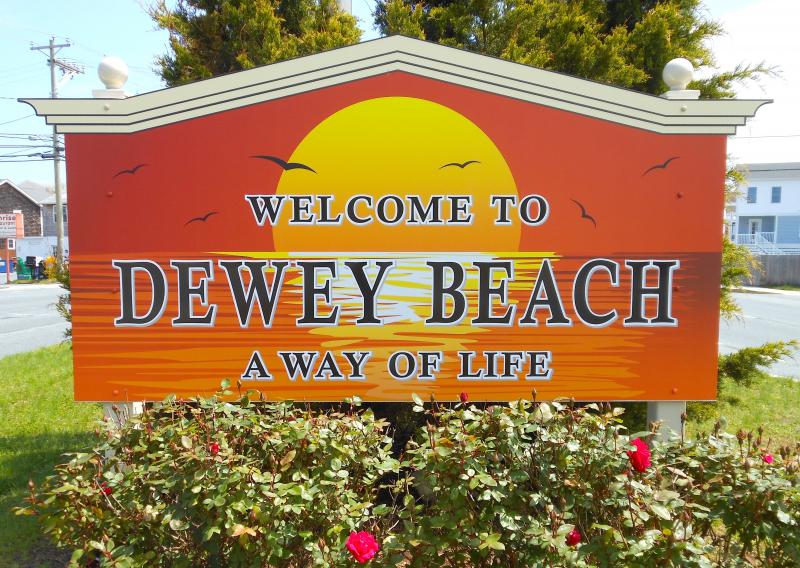Compared to other Delaware beach communities, Dewey’s 3 percent accommodations tax is the lowest and the only tax limited to change by the town charter.
During its April 14 meeting, Dewey town council began discussing whether to change the tax, and whether it should be specified in the charter.
Mayor TJ Redefer said the town is at an important time in its history, and this is an important subject to consider. The state is always looking for ways to get more money, and the town needs to make sure it’s protected itself, he said.
Republican legislators have introduced a bill applying the state’s 8 percent lodging tax, already assessed on hotels and motels, to short-term vacation rentals – defined as less than 120 days. The state has estimated the change could bring in $8 million to $11 million in annual revenue.
During the recent council meeting, Dewey commissioners took a two-pronged approach to the accommodations tax question.
First, council discussed whether to increase the tax, and if so, should the revenue go to the general fund or to fund a specific need – such as bayside flooding.
According to information gathered by Commissioner Gary Persinger, Dewey’s accommodations tax is at least 2 percent lower than surrounding beach communities – Lewes and Ocean View have a 5 percent tax, Rehoboth is 6 percent, Bethany is 7 percent, Fenwick is 7.5 percent and South Bethany is 8 percent.
Persinger said if the tax were raised, it should be dedicated for the purpose of addressing a recognized issue. He suggested bayside flooding.
Commissioner Paul Bauer questioned why Dewey’s accommodations tax needed to be so much lower than the surrounding municipalities. Maybe the town should be more in line with others, but a percentage point lower to maintain competitive advantage, he said.
The second issue is whether wording in the town’s charter should be removed that says the tax does not apply to the rental or lease of property that falls under the state’s accommodation tax.
Holding up his fingers in the shape of a zero, Commissioner Dale Cooke said the town’s revenue from its accommodations tax would go to zero if this wording stays in the town’s charter, and the state decides to include short-term vacation rentals in its accommodations tax.
Persinger said Dewey is the only town whose accommodation tax is in the town’s charter, which he said means any change in the tax must be approved by the Legislature. He said all other municipalities deal with the tax in their code, which means town officials can change it themselves.
Persinger said Rehoboth and Dewey use similar wording to define rentals charged the town’s accommodations tax, but, he said, Rehoboth commissioners can change the definition themselves through an ordinance because it’s dealt with in town code.
Marcia Schieck, who rents multiple houses in town, reminded commissioners the tax is in the charter because it was controversial. She said a referendum was held to see if property owners would voluntarily participate in the tax.
She also said rental property owners are feeling targeted because the town hasn’t looked at increasing the contribution to town revenue from other types of businesses. Raising the accommodations tax would not be a positive thing, she said.
Harry Wilson, a longtime realtor in Dewey, said said the town’s image has changed for the better in recent years, but there’s been a real push from renters who want to stay less than a week, which may not be the type of customers the town wants to have.
“We’re not on the same level as Rehoboth or Bethany, yet,” he said, “and an increase in the accommodations tax is not the way to get there.”
Chris Flood has been working for the Cape Gazette since early 2014. He currently covers Rehoboth Beach and Henlopen Acres, but has also covered Dewey Beach and the state government. He covers environmental stories, business stories and random stories on subjects he finds interesting, and he also writes a column called Choppin’ Wood that runs every other week. Additionally, Flood moonlights as the company’s circulation manager, which primarily means fixing boxes that are jammed with coins during daylight hours, but sometimes means delivering papers in the middle of the night. He’s a graduate of the University of Maine and the Landing School of Boat Building & Design.



















































